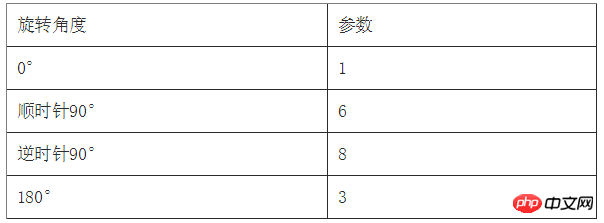
This time I will bring you a detailed explanation of H5 synthetic posters. What are the precautions for H5 synthetic posters? The following is a practical case, let’s take a look.
Foreword: I recently made a mobile project that uses canvas to synthesize poster images. Since I don’t have any canvas foundation, I searched the Internet for a senior’s demo, but encountered many problems during the development process. Now, The problems encountered and the solutions are summarized as follows:
1. The problem of adapting the mobile canvas project to full screen
Problem description: Due to the width and height of the canvas Only the px value can be set, and the rem unit is not supported. Therefore, it is difficult to achieve the effect of the canvas covering the full screen when the screen resolution of the mobile device is complicated. Solution: Obtain the clientWidth value of the mobile phone screen through js and assign it to canvas to achieve the effect of adapting to the full screen;
var clientWidth = document.documentElement.clientWidth;
var canvasWidth = Math.floor(clientWidth);
var canvasHeight = Math.floor(clientWidth*(1334/750));
$("#main").css('width',canvasWidth+'px');
$("#main").css('height',canvasHeight+'px');2. The image synthesized by canvas appears blurred
Problem description: There is a blurry problem in the pictures generated by canvas, especially if there are QR codes on the pictures that need to be recognized, users cannot recognize them at all;
Solution: 1) You can quote hidpi-canvas. js plug-in solves this problem;
2) You can also set the width and height values in the style of the canvas to the size you want, and then enlarge the width and height values of the canvas x times respectively, here Note that when you draw pictures or text on the canvas, the corresponding values should also be magnified by x times.
3. When compositing pictures, the pictures of some models are messed up.
Problem description: When exporting base64 images of canvas, some Android phones can only display the image with the desired effect. Half, preliminary analysis is a bug caused by the device pixel ratio.
Solution: Get the device pixel ratio PR and determine the model. Here I only determined whether it is an iPhone or an Android. There is no problem yet. When compositing the picture, restore the width and height values to the original size. .
//hidpi-canvas将canvas的width和height属性放大pr倍
if (navigator.userAgent.match(/iphone/i)) {
canvas.width = width ;//恢复为原先的大小
canvas.height = height ;
}else{
canvas.width = width / pr;//恢复为原先的大小
canvas.height = height / pr;
}4. There is a rotation problem when uploading pictures to the iPhone
Problem description: During the test, it was found that the photos uploaded to the iPhone were rotated, while the pictures saved from the Internet were uploaded. This problem will not occur and Android will run normally.
Solution: This problem can be solved using the exif.js plug-in. This plug-in will obtain the angle and other information when the photo was taken, mainly the Orientation attribute, so as to perform corresponding operations;

var file = $(this)[0].files[0];
EXIF.getData(file, function() {
EXIF.getAllTags(this);
Orientation = EXIF.getTag(this, 'Orientation');
});5. Canvas draws cross-domain images and cannot export base64 images
Problem description: When there are images from cross-domain requests in the canvas, exporting base64 images fails. Preliminary analysis should be caused by the security mechanism of canvas itself.
Solution: This bug needs to be solved by the front-end and back-end cooperation. First, set the back-end to allow cross-domain images, and then set Img.crossOrigin = "Anonymous"; on the front-end.
var pageqrcodeimg = qrcodecanvas.toDataURL('image/jpg');
var qrcodeImg = new Image();
qrcodeImg.crossOrigin = "Anonymous";
qrcodeImg.src = pageqrcodeimg;
qrcodeImg.onload=function(){
//绘制图片
}6, A white screen will appear when canvas draws a picture
Problem description: A white screen will occasionally appear when canvas draws a picture. Preliminary analysis is that the drawing operation was performed before the picture was read.
Solution: Add the onload function to img, and then perform the drawing operation after the image is read.
qrcodeImg.onload=function(){
//绘制图片
}7. Pictures cannot be saved by long pressing in WeChat browser
Problem description: Pictures generated through canvas cannot be saved or recognized by long pressing in WeChat browser QR code, this happens in some pictures on Android, but normal on iPhone. Preliminary analysis is that the picture quality is too high.
Solution: Compress image quality when exporting base64 images.
var mycanvas = document.getElementById("main");
var image = mycanvas.toDataURL("image/jpeg",0.7);Postscript: These are basically the problems encountered so far. If any problems are encountered in the future, we will continue to update.
I believe you have mastered the method after reading the case in this article. For more exciting information, please pay attention to other related articles on the php Chinese website!
Recommended reading:
Detailed explanation of H5 server push events
Realizing mobile animation effects based on HTML5 gyroscope
H5 calculates the number of times the phone is shaken
The above is the detailed content of Detailed explanation of H5 synthesis poster. For more information, please follow other related articles on the PHP Chinese website!
 What are the production methods of html5 animation production?
What are the production methods of html5 animation production?
 The difference between HTML and HTML5
The difference between HTML and HTML5
 InvocationTargetException exception handling
InvocationTargetException exception handling
 What to do if the login token is invalid
What to do if the login token is invalid
 Tutorial on buying and selling Bitcoin on Huobi.com
Tutorial on buying and selling Bitcoin on Huobi.com
 Why does wifi have an exclamation mark?
Why does wifi have an exclamation mark?
 Connected to wifi but unable to access the Internet
Connected to wifi but unable to access the Internet
 How to solve the problem of vs2008 installation failure
How to solve the problem of vs2008 installation failure
 The main components of dhtml
The main components of dhtml




